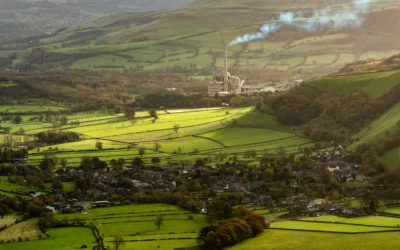Seventeen major financial institutions from the Global Alliance for Banking on Values (GABV) have publicly endorsed the Fossil Fuel Non-Proliferation Treaty (FFNPT). This international initiative aims to curb the production and use of fossil fuels, which are recognised as the largest contributors to global CO2 emissions.
Fossil Fuel Non-Proliferation Treaty: An Overview
The FFNPT seeks to align global energy production with the targets set out in the Paris Agreement by facilitating a transition away from coal, oil, and gas. According to the Intergovernmental Panel on Climate Change (IPCC), fossil fuels are responsible for 86% of global CO2 emissions. The treaty explicitly focuses on ending fossil fuel expansion and phasing out existing production, thus tackling the critical drivers of the climate emergency.
Banks as Agents of Change
The seventeen GABV member banks are pioneering this drive, leveraging their financial influence to foster sustainable development. These institutions include Triodos Bank, Amalgamated Bank, Banca Etica, and Vancity, among others. Their collective endorsement of the treaty represents a significant step in the financial sector’s evolving role in combatting climate change.
David Reiling, Chair of the GABV and CEO of Sunrise Banks, stressed the importance of the sector’s active participation. “By signing onto this treaty, we are levelling the playing field and driving a global and equitable transition to meet our 2050 Net Zero Commitment,” he commented, highlighting the need for a binding agreement to signal the business community’s commitment to a sustainable future.
Context and Background
The global call for a Fossil Fuel Non-Proliferation Treaty has been steadily gaining momentum. The proposal has already received backing from the World Health Organisation, the European Parliament, and twelve nation-states. Over 3,000 scientists, 101 Nobel laureates, and numerous health professionals and religious institutions have also voiced their support.
Despite the Paris Agreement’s critical climate targets, many countries continue to approve new fossil fuel projects. The United Nations Environment Programme’s (UNEP) Production Gap Report 2023 indicated that fossil fuel extraction plans are undermining the world’s ability to meet those targets, projecting that fossil fuel production will exceed what is needed to limit global warming to 1.5°C by 110% by 2030.
Financial Sector Impact
The financial sector has historically been a significant contributor to fossil fuel financing. Reports such as “Banking on Climate Chaos” reveal that since the Paris Agreement, banks worldwide have injected $5.5 trillion into fossil fuel projects. If the largest U.S. banks and asset managers were a country, they would reportedly be the third-largest emitter of CO2, following China and the United States.
However, a shift is happening. During the United Nations Climate Change Conference COP26 in Glasgow in 2021, major western banks pledged to reduce their carbon footprint to net zero by 2050. Despite such commitments, the transition to investing in low-carbon and green projects has been sluggish. Research by Bloomberg NEF has shown that the ratio of bank financing for low-carbon ventures relative to fossil fuel investments remains insufficient.
The Road Ahead
The endorsement by GABV banks is expected to encourage other financial institutions to follow suit. Ali Sheridan, Director of Major Partnerships at the Fossil Fuel Non-Proliferation Treaty Initiative, highlighted the responsibility and opportunity for the financial sector to drive substantial climate action. “By aligning financial practices with sustainability goals and supporting initiatives like the Fossil Fuel Treaty, banks can play a leading role and drive meaningful change,” Sheridan remarked.
With the backing of these values-based banks, the Fossil Fuel Non-Proliferation Treaty is poised to gain further traction, aiding the global community’s efforts to transition to a cleaner, more equitable energy future.




